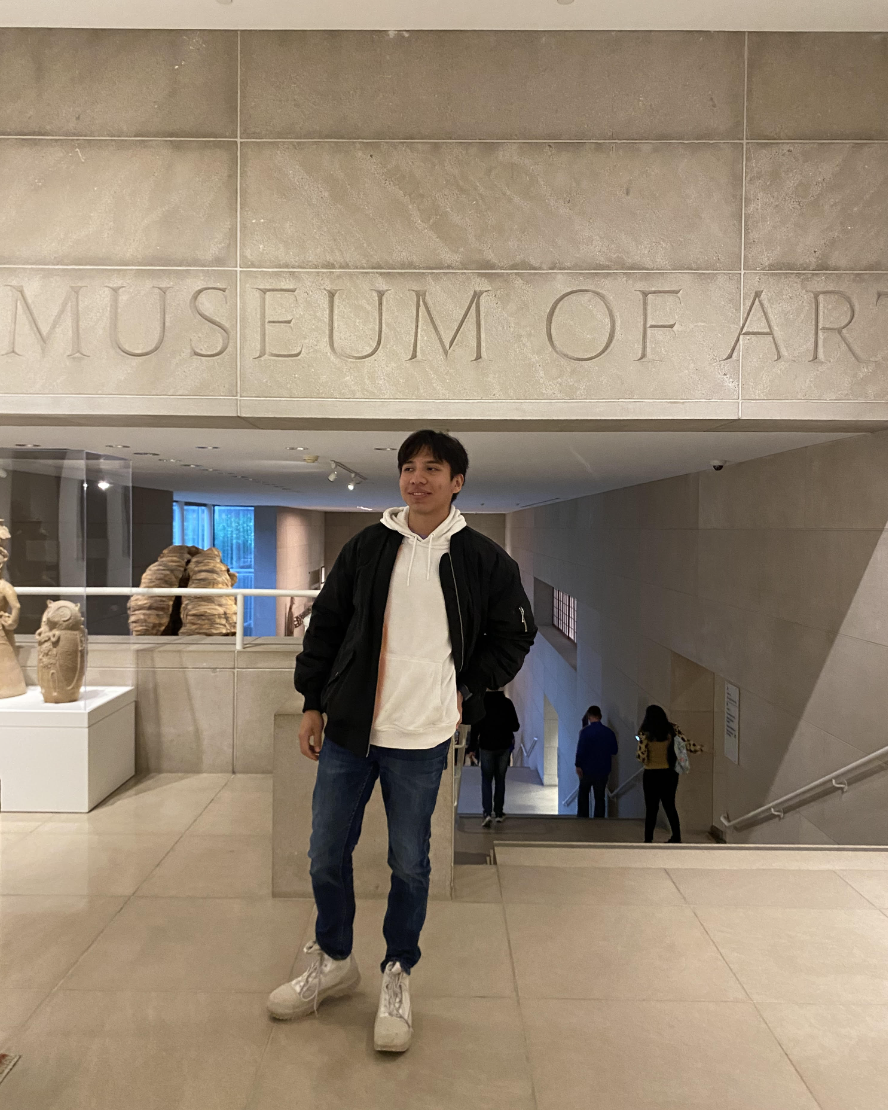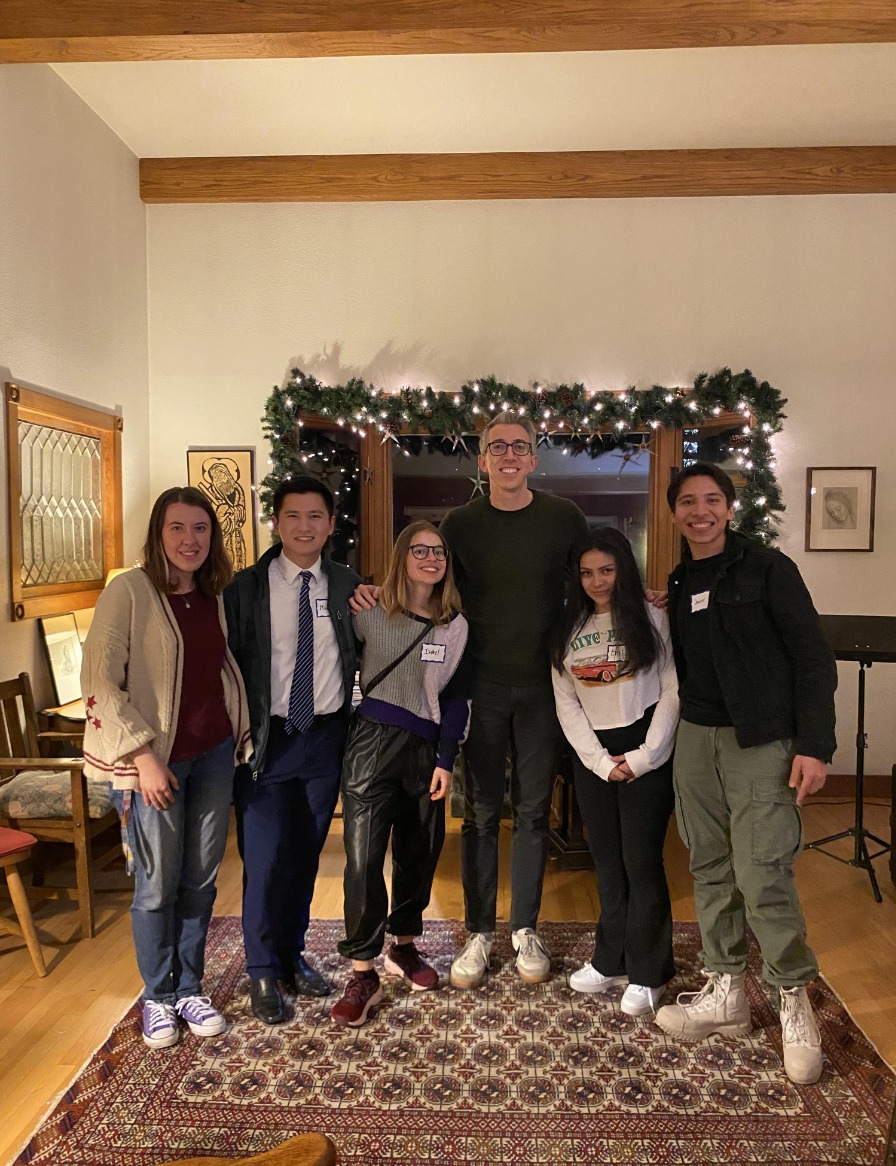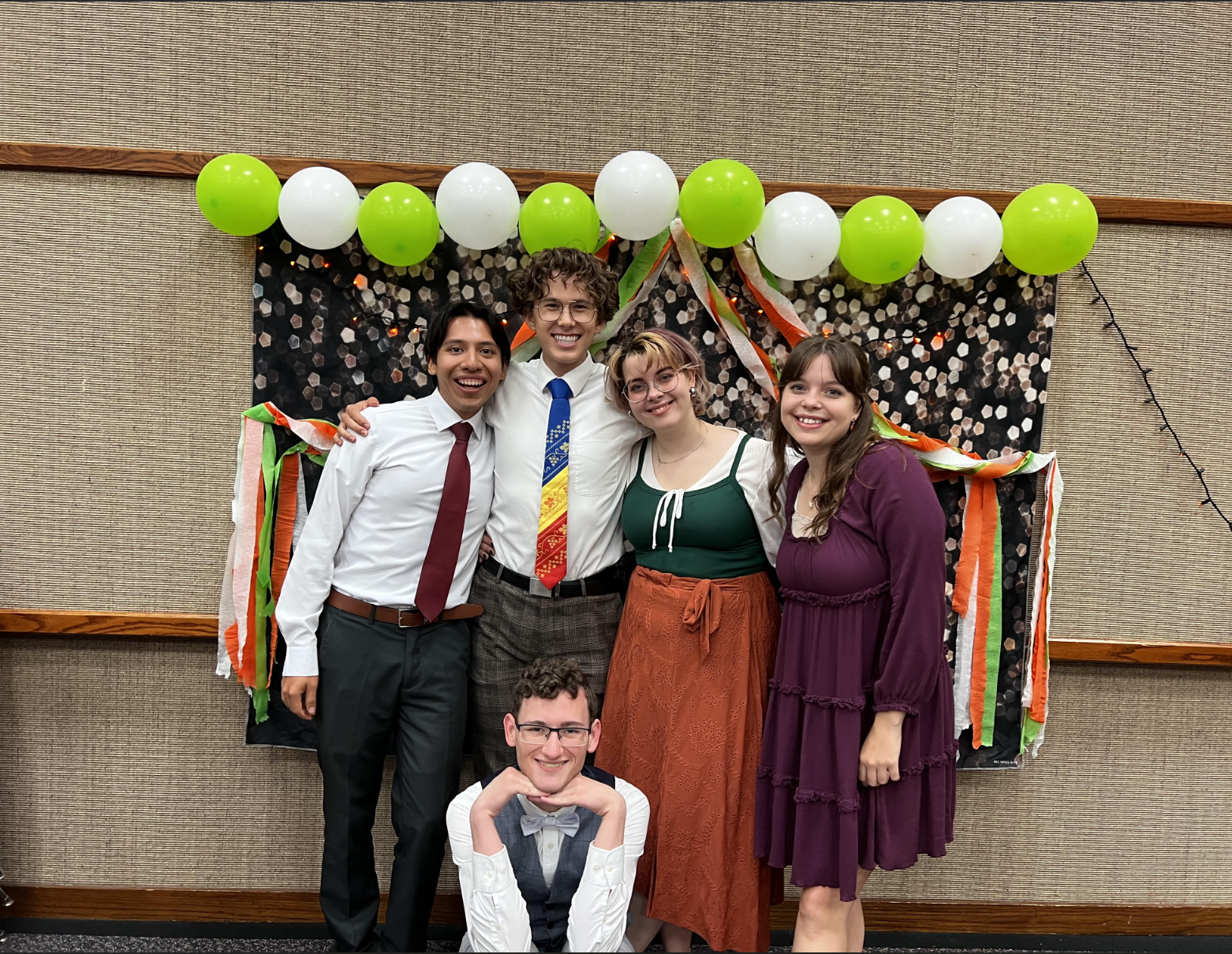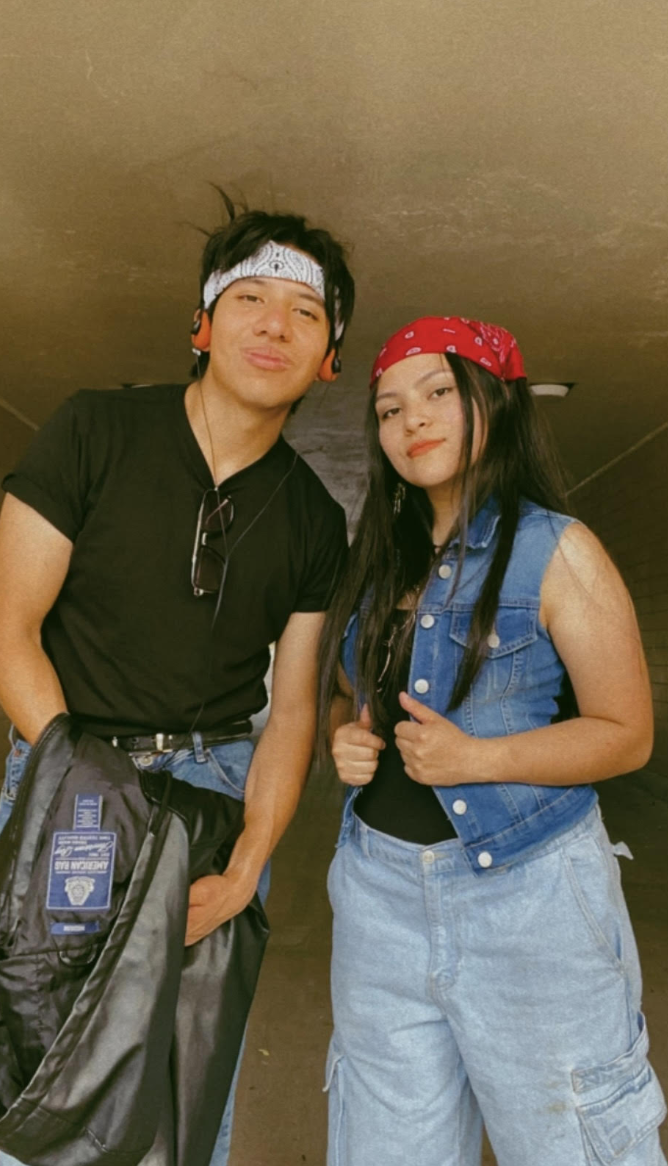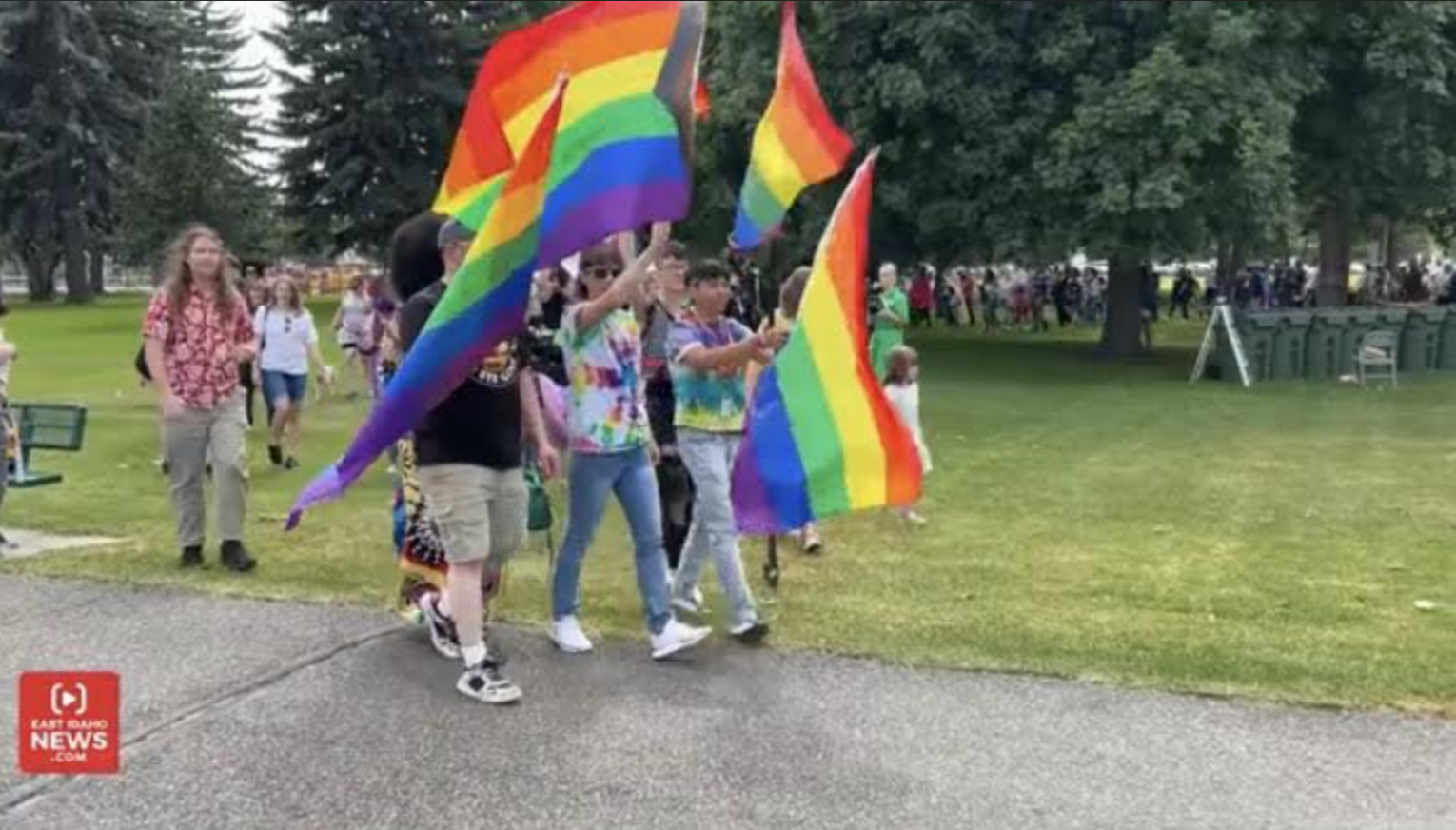Tomorrow, Javier Aguilar turns 24. He’ll celebrate in Allen, Texas where he is currently working for a light installation company while taking a break from his studies at BYU Provo. He’s a long way from Mexico City, where he was born and raised, but not too far from his parents who moved the family to Texas while he was on a mission. While within their physical proximity, emotionally, family life is a struggle for Javier, whose parents would rather deny the fact that he identifies as bisexual, with his leanings more toward men.
The oldest of five kids, Javier grew up in a well-known, “pioneer” family in the LDS faith in Mexico. His grandfather was a patriarch, sealer, and principal of the LDS church-owned school in their region. As a child, Javier often felt the spotlight on him, with other parents in their congregation saying things to their kids like, “Why can’t you be like Javier? He’s so nice, so obedient.” Overhearing this, Javier would think, “If you only knew.”
His orientation was not at the forefront of his mind quite yet, but Javier certainly knew he wasn’t perfect. He says he was on autopilot mode with church—attending every Sunday with his family, and promising he was reading his scriptures, whether he managed to or not. He tried to always do what would best please his parents and his ancestry who prioritized strict obedience, discipline, and manners—there were no elbows allowed on the table at the Aguilar house. As the oldest kid, Javier knew he was to be the example.
Music was a large part of Javier’s upbringing, and he played the piano and other instruments. He was also involved in theater and the drama club. While his parents always encourage him to play sports, he says he “sucked at basketball but liked it.” He also liked school and tried hard, but claims he wasn’t always a great student.
Javier didn’t realize he was attracted to guys until high school. Before, it was more of a curiosity in which he’d find himself paying attention to those he found attractive. But he didn’t dare talk to his parents about it, as they had once told him if he ever saw someone who was gay, to move in the opposite direction and “keep yourself as far away as possible from this.” Helping him with a Primary talk once, his father even likened homosexuality to one of Moses’ plagues. It wasn’t until he was older that he got to know people in the LGBTQ+ community. But even when he met his first bi person, he didn’t get too close.
The time came for Javier to serve a mission. In his house, his father only half-jokingly would say, “You have two options. You either go on a mission, or I send you on a mission.” So of course, Javier went. It took him a little bit to acclimate, but he did love his mission. Today, he says if he had gotten an answer whether to serve for himself, it might have gone better faster. He spent the first half in Brazil and the second half in Mexico, due to the pandemic. Like many, Javier believed if he did his best on his mission, his attraction to guys would go away. But when he returned, that wasn’t the case – in fact, he found his feelings had only increased.
A couple months after his return, Javier started a long-distance relationship with a girlfriend back in Mexico, trying to please his parents in Texas. At the same time, he started talking to a male friend from the mission and realized he was developing feelings for him. Worried he might out himself or another person, Javier tentatively got in touch with a missionary he’d heard about in Mexico City who was gay, hoping he could ask some questions somewhere, to someone who might get it. Even though they’d never met, they had a productive conversation, though that alone made Javier feel very guilty for going against his parent’s wishes to turn away from all things LGBTQ+. The missionary was helpful and happy to help and directed Javier to the Questions from the Closet podcast, which converted Javier “into becoming a podcast guy.” Javier says, “It was great to finally listen to stories of people who are part of the church but also living out their sexuality. The podcast answered some of my questions.”
Javier had made a friend on the mission who had come out for the first time ever to Javier. In turn, Javier came out to this young man while communicating online, realizing he might even have a crush on him. In response, Javier says, “He lost his mind, he was super happy and called me. This was the first time I was actually starting to accept it.” Shortly after, Javier would occasionally whisper to himself, “I’m bi; I’m part of the LGBTQ community.” His internalized homophobia caused it to take some time to get used to, but gradually he became less afraid. TV shows about LGBTQ+ characters and the movie Love Victor helped Javier feel less isolated. His plan was to only tell two friends ever, but over time he realized he wouldn’t be able to keep it a secret for the rest of his life.
Soon, Javier found himself at BYU Idaho where he found a “cool group of friends who adopted me. They were Latinos, too, so they understood. I was able to come out and they were so supportive, even with having Latino backgrounds where machismo was often still a thing.” In Rexburg, Javier says, “I didn’t break the commandments, but I took a break from church.” After two semesters, he came back home with a new sense of confidence about who he was. He sensed he should tell his parents, but wasn’t sure how. Javier consulted with a close friend in Texas named Ben who was going through similar things. Javier’s depression peaked, and even when he was hanging out with friends, he felt so alone. One night, Javier went to a park where he says he “bawled my eyes out.” He put on his Air pods and walked around, “wanting to scream, to cry; I wanted everything and nothing at the same time.” Javier texted Ben and begged him to join him, risking the embarrassment of having his friend see him in that state just so he didn’t have to be alone. After arriving, Ben convinced Javier that not coming out to people was only going to continue to hurt Javier. Javier agreed and told his friend a date he’d come out to his parents, for accountability.
Having selected a day he’d be meeting his parents at the temple, Javier listened to music to prepare. But when he arrived, there were other ward members there so Javier requested he and his parents go off alone so he could tell them something. His mom expressed excitement, thinking he might be getting engaged (even though he wasn’t dating anyone). When Javier instead told them he liked boys and girls the same way, he saw their faces contort with anger, sadness, and deception. He calls it “a face I’d never seen before. I stopped talking; they didn’t say anything. My hands were sweating, I was shaking. Fortunately, the bishop came up and said, ‘Let’s go inside’.”
For Javier, the session was a blur and when he returned home, his parents called him into their room. He shared more and invited them to read up on LGBTQ+ from the church website. They replied they would not be doing that and told him he had a disease he needed to be cured of. Javier concurred that him telling them was a way of admitting he wanted to be cured, but that he was innocent and hadn’t done anything to cause this. He says, “I couldn’t say anything; the things I said were used against me. I felt destroyed.” He went to his room and texted Ben to share how badly it had gone.
The next morning, Javier begrudgingly went to church but felt “so broken and sad.” He sat next to Ben, who gave him a side-hug that meant the world in support. He says, “I wanted to cry; I just wanted that hug so badly from someone who was supportive of me.” As time passed at home, things were not great whenever the topic of LGBTQ+ came up. Javier returned to school where he participated in a research project wherein he realized how many students in Rexburg vitally needed support after facing discrimination. Javier and his friend Emily started a support group, mostly to combat racism, but also LGBTQ+ bigotry.
The next time he went home, Javier decided to come out to one of his brothers. He was met with confusion and surprise, although his brother tried to be supportive. Javier says, “It was nice to have one more person in my family know about it, though my parents got mad when they found out, saying, ‘You told us you wouldn’t tell anyone, especially your siblings’.” Around that time, Javier’s dad suffered from facial paralysis due to stress, and his mother blamed a portion of it on Javier, claiming it was due to his father’s worry Javier would force their family to not achieve exaltation. Javier has tried not to internalize this. He says he knows his parents love him, and he loves them.
Soon after, Javier heard about the inaugural Gathering and went to Utah with his friend. There, he says he “felt amazing. It was so great to be with people who understood and shared my values, beliefs, and experiences. I came away crying with happiness because of the good experience.” After attending a couple smaller Gathering events, Javier decided to get more involved in Rexburg by helping organize support gatherings. He got to know the person who leads the PRIDE parade in Rexburg, and found himself being asked to lead the walk. He recalls, “It was my first time being out at BYU, and my first PRIDE parade. I was excited but scared.” As the day approached, his anxiety increased but listening to the song “This is Me” from The Greatest Showman, Javier harnessed the strength of the line, “I am brave, I am bruised, this is who I’m meant to be, this is me.”
Indeed, Javier felt every bit himself as he realized how many he’d helped by coming out and sharing his story as he marched in front of hundreds of people at the event. “It was a surreal moment; it felt so good.” Javier ended up transferring to BYU Provo, where he met a friend from Mexico who concurred they needed to start doing Gatherings in Spanish. “All of this journey has required me to step outside my comfort zone to do things I never expected… Now I’m trying to help others in Spanish-speaking countries.”
Javier says things are still rough with his parents, but “as long as we don’t talk about it, we’re fine.” He maintains hope things might improve after hearing Charlie Bird on share on his podcast how it took him 20ish years to understand all this, so he could give his dad some time. Javier likewise figures he can give his own parents more time. Meanwhile, he finds joy with his “chosen family,” which consists of many friends who support him where he’s at. Javier says, “Sharing in the Lift & Love family stories is very important to me even though it might not be what you’d expect. Even though my family doesn’t support or accept this part of me, my chosen family is always there for me. Through my depression, they even got me ice cream. They’re always there.”
In Mexico, Javier shares that a cultural tradition is to call good friends “cousins” once you achieve a certain level of closeness, as if you’ve become family. He says, “I now understand why we’re called an LGBTQ+ community—it’s because we’re never alone’
















